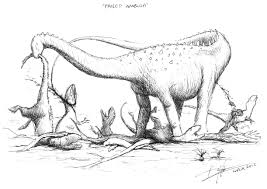 Expansion, promotion, growth, and exploration of new fields of opportunity are all desirable goals of any enterprise, business, church or individual that does not want to become stagnant or settle for the status quo. We love being part of the happening thing where there is momentum and movement. Most of us like the feeling of being on the winning side. The perks that come with growth such as more people, more money, more recognition, and the buzz of activity are attractive. Yet premature, or rapid expansion may be fraught with as many problems as there are perks. Any healthy organism, organization or person will grow deep in the unseen sub-terrain foundations to sustain the visible outward growth of more production, programs, and more people to serve. It is my observation and analysis that companies, churches, and individuals that grow their spheres of influence in a sustainable and healthy way live in the tension of their present fences, boundaries, and limitations; while preparing and planning to extend their operations and influence into new fields. They are like a rubber band that is pulled from both ends without snapping or breaking.
Expansion, promotion, growth, and exploration of new fields of opportunity are all desirable goals of any enterprise, business, church or individual that does not want to become stagnant or settle for the status quo. We love being part of the happening thing where there is momentum and movement. Most of us like the feeling of being on the winning side. The perks that come with growth such as more people, more money, more recognition, and the buzz of activity are attractive. Yet premature, or rapid expansion may be fraught with as many problems as there are perks. Any healthy organism, organization or person will grow deep in the unseen sub-terrain foundations to sustain the visible outward growth of more production, programs, and more people to serve. It is my observation and analysis that companies, churches, and individuals that grow their spheres of influence in a sustainable and healthy way live in the tension of their present fences, boundaries, and limitations; while preparing and planning to extend their operations and influence into new fields. They are like a rubber band that is pulled from both ends without snapping or breaking.
The questions that arise are: ‘How do we know what our fences. limits, or boundaries are? When do we stay put within these fences and consolidate? How do we know when to take risks and move out into new fields of opportunity?
Most of us chafe at the idea of having fences put around us. We tend to see these fences as keeping us from something better on the other side, or as an obstacle to our freedom and growth. How can limits, boundaries, and fences actually be a gift? King David paints a different picture on the benefits of boundaries in Psalm 16:6:
The boundary lines have fallen for me in pleasant places; surely I have a delightful inheritance.”
Boundary lines or fences in our lives help us to know where our assigned field is, and where we have authority to operate. In this context, I would like to define authority as the ability to influence flowing from a delegated position, or earned through relationships developed in a defined field of geography, an area of expertise, or an organization. Authority comes from having a skill set or gifting, and the necessary resources to do the assigned job or project. For example, after coaching soccer in our neighborhood of Bowness for over 10 years, and coaching or playing soccer at a many levels since I was a child; I have both delegated, geographic, and relational influence with the families of the kids I coach in soccer.
operate. In this context, I would like to define authority as the ability to influence flowing from a delegated position, or earned through relationships developed in a defined field of geography, an area of expertise, or an organization. Authority comes from having a skill set or gifting, and the necessary resources to do the assigned job or project. For example, after coaching soccer in our neighborhood of Bowness for over 10 years, and coaching or playing soccer at a many levels since I was a child; I have both delegated, geographic, and relational influence with the families of the kids I coach in soccer.
When we are working from within our fences around our assigned field, we will being doing what we are good at which brings both a sense of fulfillment and visible results confirmed by those around us.”
How does one determine their fences and assigned field? In 2 Cor. 10: 13-15, Paul gives us a few clues about how we determine our fences and field:
We however, will not boast beyond proper limits, but we confine our boasting to the field God has assigned to us, a field that reaches even to you. We are not going too far in our boasting, as would be the case if we had not come to you, for we did get as far as you with the gospel of Christ. Neither did we go beyond our limits by boasting of work done by others.”
- Relationship Fences: Who do you have relational equity with? These folks invite you to influence with your message, skill set, or want to buy your product. You have established trust with these people, companies or churches over time by being trustworthy, authentic, and dependable with your marketing, message, and product. The tricky part can be when you have relational influence that crosses organizational authority fences or lines.
Be aware of the spoken and unspoken rules of engagement in an organization when you work through relational authority lines that are outside the lines of delegated authority. If you don’t you will step on toes, and rightly or wrongly be pegged as stepping into someone’s sand box without permission to play!”
- Capacity Fences: Know your limits emotionally, financially, energy wise, and in skill set!
When you feel frayed, spent, overwhelmed, in over your head, and over extended heed these limits, or you will burn out or end up bankrupt! When you are working within the field of your relational, delegated, and resource fences or limits the extra peace, provision, and people will come to position you to take on more.”
- Character Fences: This fence includes the slats of humility and honesty. Give credit where credit is due!
 “Don’t take credit for someone else’s work as a means to fast tracking growth or as a tactic to promote yourself and your company! This will bite you sooner or later. Resist the urge to pump your own tires. Let others do that for you!”
“Don’t take credit for someone else’s work as a means to fast tracking growth or as a tactic to promote yourself and your company! This will bite you sooner or later. Resist the urge to pump your own tires. Let others do that for you!”
When it comes to knowing when to expand your sphere of influence, there is one good litmus test that is a great check and balance especially for entrepreneurial, visionary type leaders. Are those around you ready to risk with you? This is what I like to call the ‘team leap test’. Our sphere of influence expanding is not only determined by our readiness to risk, but also the willingness of those in in our present circles of influence also being willing to risk. Paul states this in the latter part of 2 Cor. 10:15 when he says, “Our hope is that as your faith continues to grow, our area of activity among you will greatly expand…”
there is one good litmus test that is a great check and balance especially for entrepreneurial, visionary type leaders. Are those around you ready to risk with you? This is what I like to call the ‘team leap test’. Our sphere of influence expanding is not only determined by our readiness to risk, but also the willingness of those in in our present circles of influence also being willing to risk. Paul states this in the latter part of 2 Cor. 10:15 when he says, “Our hope is that as your faith continues to grow, our area of activity among you will greatly expand…”
 We can all give examples of leaders who have boldly taken steps to risk without taking the pulse of the key people around them, and measuring the risk quotient of key contributors. Often the result is the visionary leader ends up alone without the help they need to be successful in the venture, or there is a lot of collateral damage in relationships as the company or church veers in a different directions. Sometimes the company or church collapses from being over extended without the infrastructure to sustain the expansion. I call this visionary whiplash syndrome. What the visionary leader thinks is a slight, small 3 degree shift or change in direction can feel like a 90 degree snapping of the tail to those at various levels in the company, and tje communities they lead.
We can all give examples of leaders who have boldly taken steps to risk without taking the pulse of the key people around them, and measuring the risk quotient of key contributors. Often the result is the visionary leader ends up alone without the help they need to be successful in the venture, or there is a lot of collateral damage in relationships as the company or church veers in a different directions. Sometimes the company or church collapses from being over extended without the infrastructure to sustain the expansion. I call this visionary whiplash syndrome. What the visionary leader thinks is a slight, small 3 degree shift or change in direction can feel like a 90 degree snapping of the tail to those at various levels in the company, and tje communities they lead.
Not everyone will have the same risk quotient or be willing to grow. There will always be naysayers and laggards, but the more people we can bring along the better. Another way to put it is that when those around us are growing and expanding their spheres of influence, our sphere of influence will grow! This is essentially the commitment to mentoring and multiplying of new leaders by empowering and envisioning them to see how their personal vision can be fulfilled within the context of a larger shared vision. When the culture changes from ‘I’ to ‘we’, we all win. A ground swell of momentum and movement slowly builds like a snowball going down a hill. It starts out slow and small, and then gains speed becoming an unstoppable force! Remember, it may take some years of living the dream within the confines of your present fences and field before your sphere of influence expands.
but the more people we can bring along the better. Another way to put it is that when those around us are growing and expanding their spheres of influence, our sphere of influence will grow! This is essentially the commitment to mentoring and multiplying of new leaders by empowering and envisioning them to see how their personal vision can be fulfilled within the context of a larger shared vision. When the culture changes from ‘I’ to ‘we’, we all win. A ground swell of momentum and movement slowly builds like a snowball going down a hill. It starts out slow and small, and then gains speed becoming an unstoppable force! Remember, it may take some years of living the dream within the confines of your present fences and field before your sphere of influence expands.
Go start a movement by helping folks heed their fences, focus on their fields of relational, geographic, and delegated influence, and by helping folks stoke the flame for taking new jumps of faith or risk!”
By Tim Schultz